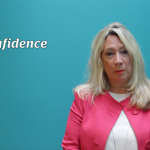So, if we leave everything to chance our great grand daughters, or is it great, great, will be the ones who finally have equality of pay with men. Well, I bet those young women of 2109 will thank you for allowing that legacy of unfairness to continue as long as possible. Here we are forty one years after The Equal Pay Act of 1970. Currently, at executive levels, women are paid 10k less for doing the same job as men – average for men= £42,441 and for women= £31, 895. This costs women around £330,000 over a working lifetime. Elsewhere in the organisation, the gap is 15.5% – so women work 12 months but get paid for 10½ months. Enjoy those 6 weeks you give as charity. Think what else you might do with your unpaid time!
What can redress this?
Making a fuss rather than accepting that it is too complicated to get these changes in place after 41 years so let’s set a target for another 98? Come on! Getting more women reaching senior positions so that issues like this are dealt with fairly Ensuring that women recognise their worth and are confident to negotiate on pay and bonuses like their male counterparts always do Challenging assumptions about the impact of child bearing on a long working life. If you’ve got 40 years, a few years at a different pace because of children should not determine how you are valued for the rest of your days. That’s just a very lazy argument. Changing the way that part time working is perceived and valued. Currently it is less highly paid by the hour compared to full time work, despite the fact that part time workers often give extra time that mounts up over the years. In the future, more creative ways of working will appeal to many of the younger men too who do not want to replicate the lives of their absent, long hours Dads. Ensuring that shareholders understand the business benefits on the bottom line of retaining and rewarding female talent. If you own any shares in a company you should be asking them what they are doing about appointing more women and closing the pay gap. Ask for transparency on gender pay gaps and tell everyone the results. Lobbying parliament through your local MP to scrutinise pay, demand transparency and expose those who perpetuate the gap. One women crying in the wilderness will be pilloried in the press – usually about her appearance -but a ‘Monstrous regiment of women’ (thank you John Knox) might have to be listened to. We can’t just shrug and let this go because we don’t want to upset the apple cart or because deep down we’re not actually sure ‘we’re worth it’. Don’t you just miss sensible old feminism – the sort that just spoke up when things were unfair?




